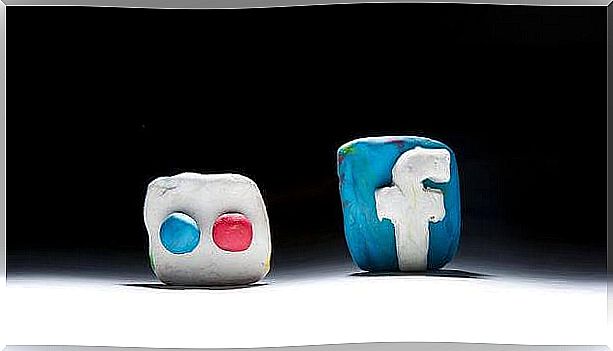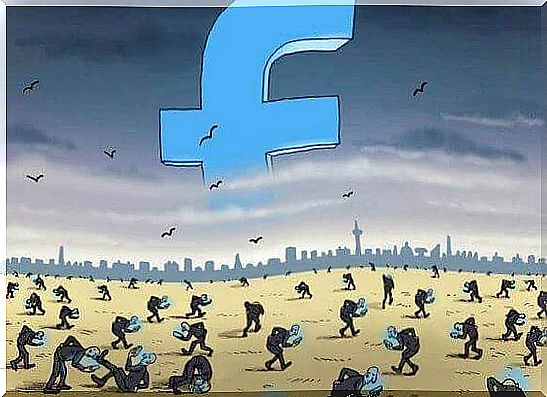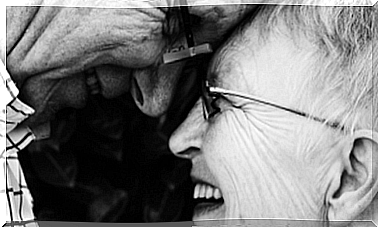Leaving Facebook Can Make Us Happier

Social networks like Facebook can be a great source of entertainment. They offer us many opportunities on a virtual level which, if founded on healthy relationships of esteem and respect, can allow us to grow
Problems arise when these mechanisms negatively affect our everyday life. Let’s take the constant use of mobile phones as an example, with the consequent need to update and view the publications of our friends and our favorite pages.
Living slaves of social networks leads us to forget the taste of what is simple, of small daily miracles such as breathing, drinking thirst or smelling a rose.

Science confirms it: quitting Facebook would do us good
The way we abuse social networks today is reversing their initial purpose. We watch our friends’ lives go on through a screen, and so do they with us. It is a procedure that undoubtedly eliminates the beauty of direct contact.
Most of us realize this: we are losing a lot of our life just to stay behind a screen, an app, navigators and keyboards. What’s more, if once reading a book was the prevailing habit when going to bed, now we go to bed and we are immediately online.
In fact, we even struggle to watch a movie on the sofa in its entirety, without having to check the phone or tablet every five minutes. All this, as you can guess, is affecting our well-being.

This is what emerged from a study carried out by the Research Institute for Happiness, according to which the use of Facebook is not always good for our spiritual well-being. The study was carried out with the collaboration of 1000 people and lasted a week, during which half of the subjects stopped using Facebook.
At the end of the week, 88% of those who had stopped using the social network said they felt good, compared to 81% of those who had continued to use it regularly. The figure is not disconcerting in itself, yet, if we refer to the percentage of abstinent people who have declared themselves satisfied with their lives, we find that:
- 20% of those who haven’t used Facebook for a week said they are comfortable with their life.
- Only 12% of those who used Facebook said they were satisfied with their life.
The reason for this difference, according to the research, lies in the envy and frustration we feel when we realize that our life falls short of the retouched lives we see on the bulletin board. Detaching from the most popular social networks will consequently lead us to be more enthusiastic, less worried, more determined and less lonely – we will spend more time face-to-face with those around us rather than contemplating a screen.

If it’s private, don’t share it on Facebook
By constantly relating through social networks, we jeopardize our intimacy and that of others. Since some information is not identifiable, we tend to depersonalize the recipient of the message ( or at least to believe that it is benevolent and trustworthy).
In other words, we often tend to use Facebook as a secret diary or entity to which we confess deeply private aspects and which should not be disclosed. As a result, it is easy to throw wood on the fire of gossip and misinterpretations.
The conclusion that can be drawn from these studies and from the reality we live day by day is that the use of new technologies and social networks must be regulated by moderation and common sense; in other words, we must avoid invading our life with what is unreal and appreciating what we see behind a screen more than life lived in the first person.
Cover image by John Holcroft









